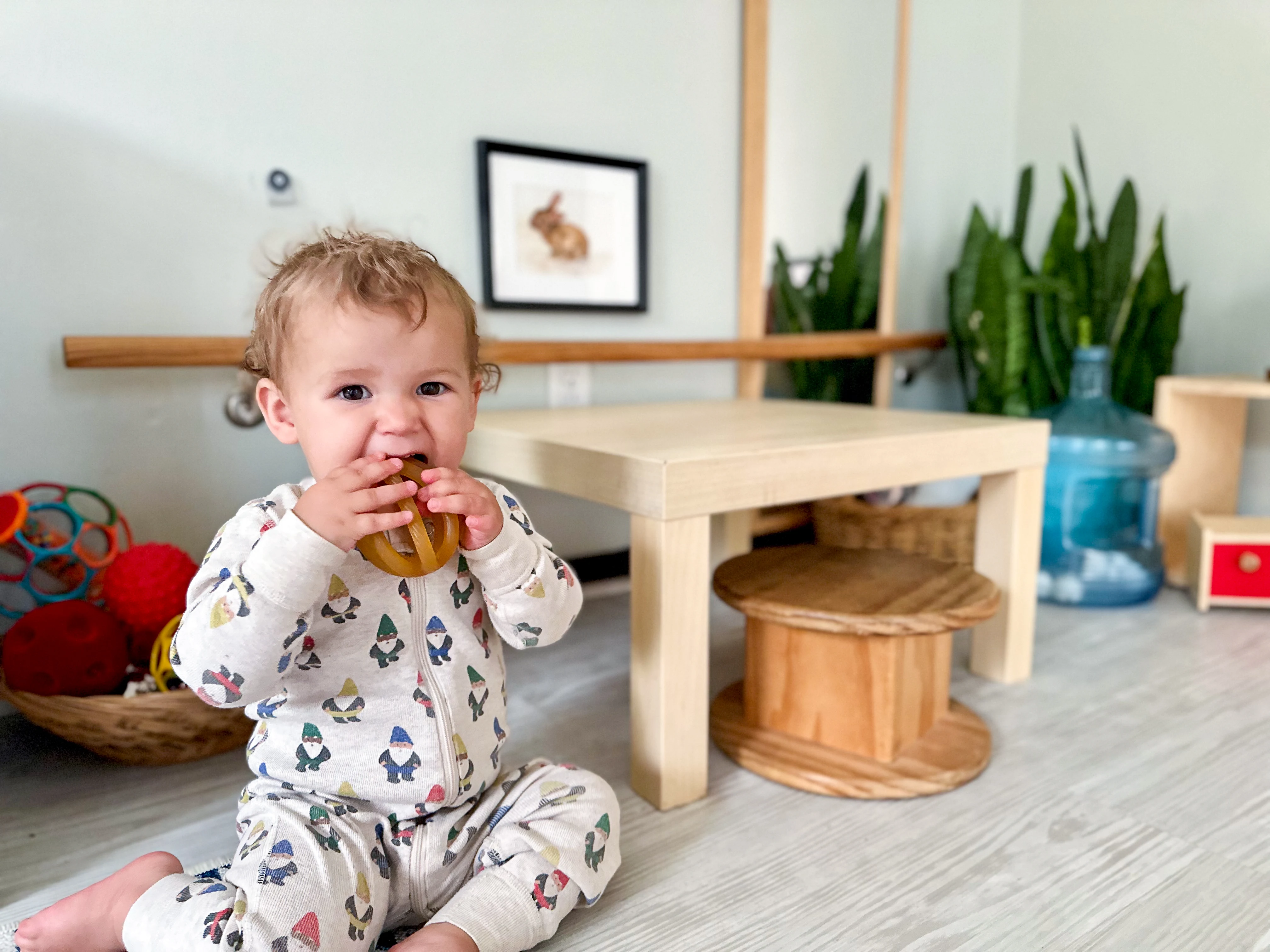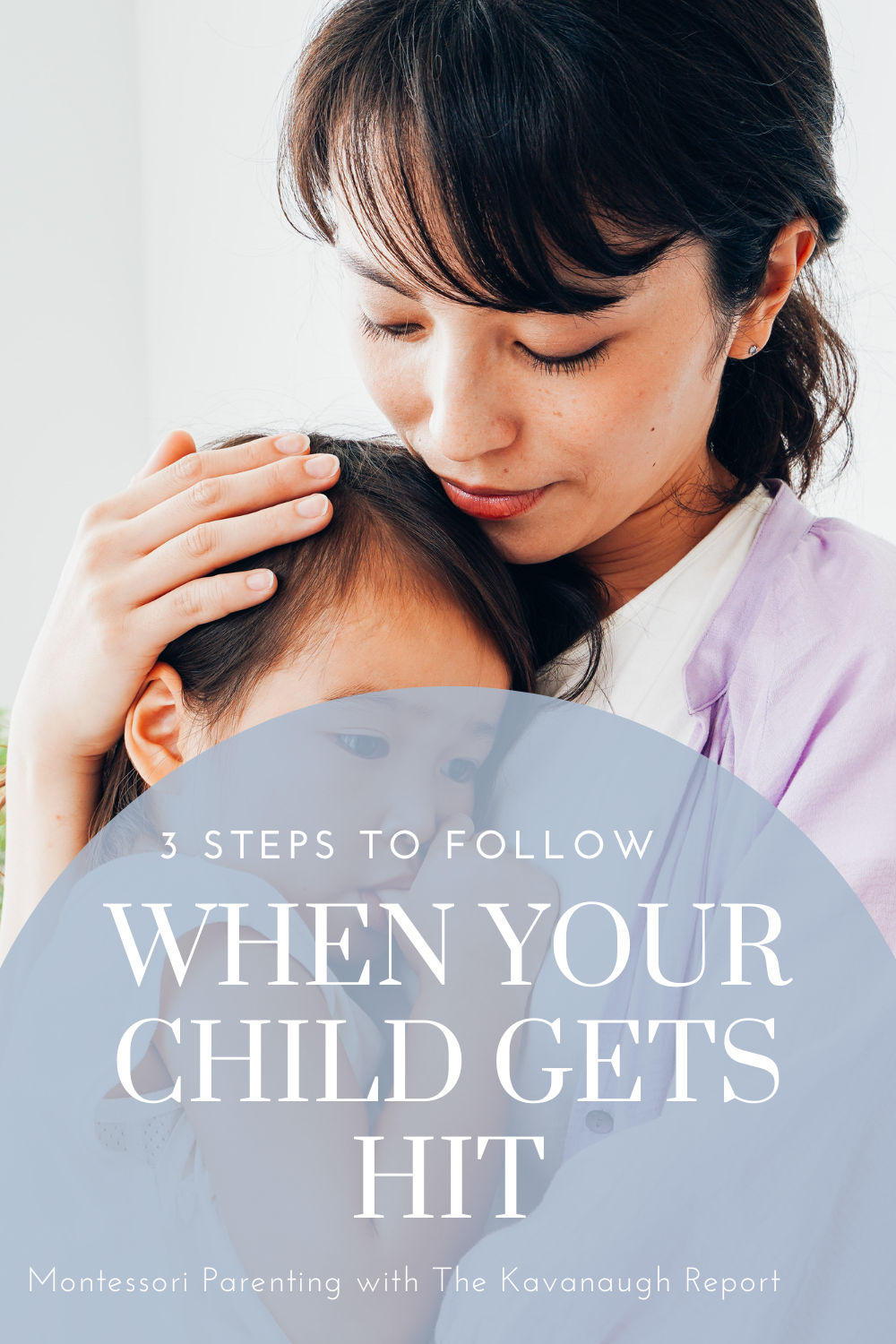No one wants to see their baby or toddler get hurt. It's particularly hard to see your child get hurt because another child has lashed out at them. Siblings hit, friends hit, and even random kids in public. That's just how kids can be. Montessori parenting with toddlers is not a cure for preventing all possible harm. But we can use our understanding as Montessori parents to create a framework for how to respond when your baby or toddler gets hit.
Montessori Parenting: Responding to Hitting
Recently, we were out at a baseball game with several of my kids. Penelope was wandering around looking into the field and into the dugout. Another toddler around her age, 16-months, was wandering around too. Suddenly he charged at Penelope and smacked her right in the face. Who knows why and honestly it's not important. Toddlers are impulsive, have nearly zero emotional control, and are following their own internal order that we don't really get to understand. So, there's no blame.
So, how do you respond? I follow these steps - no matter who is hitting or the context.
Step 1: Comfort Your Child
The very first thing to do is help the child that got hurt. Get down on their level. Offer hugs. Keep them from retaliating. Help them feel better. Then, just offering that physical support for as long as it takes.
For Penelope, this looked like holding her and hugging her on the ground. "That was really surprising. You got hit. Hitting hurts. I'm sorry that happened to you. Are you OK? I'm here for you." Within a couple minutes she was back to her regular self and happily wandering around.
Step 2: Respond to the Other Child
Once the child that has been hurt has been helped, I turn my attention to the child hit. If the aggressor child isn't my own, then there's really not much more to do. I don't seek that child out or anything. But, I would say more often than not, the other parent is trying to get the child to apologize or make amends. In these cases, I assure them that it's okay, hitting happens, no hard feelings, and that I get it.
If these still make the child come over and talk, then I model for that parent what I would hope would be said to my child if the situation were reversed. I usually sportscast some of their feelings. "You felt really frustrated and hit. It's hard when we feel frustrated." And, that's it. I want to avoid shame, and abstract apologies.
If the aggressive child was my own, then I take a similar approach. Helping them calm down if necessary through my words and physical presence. I would sportscast their feelings. "You were really angry and you hurt Penelope. That's not alright. You can be angry and safe." Then I would make a mental note of the skills we need to keep practicing (at a neutral time) to help keep feelings safe - things like deep breaths or asking for help.
Step 3: Check in with Yourself
Finally, I need to check in with myself. These things can be really triggering for me personally. My default will always be to punish and shame the child that aggressed. So I need to work really hard to fight that urge. Afterward, I often need to take deep breaths myself. And remind myself how hard this responsive, respectful Montessori parenting work is for everyone.
Getting yourself back to a regulated place is so important especially around babies and toddlers. They are reading your direct and indirect emotional cues and will take your lead in whether to get and remain calm in these moments. Your calm will spread, so take a second to calm after these big upsets.
Parenting babies and toddlers is a big job and these moments are upset aren't fun. But, learning to respond with grace and calm can help make them a little bit better. Next time your child gets hit, try these three steps and see if it makes the process a little easier on everyone.





